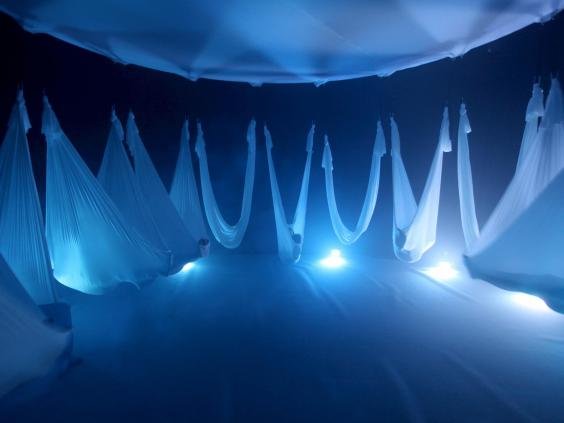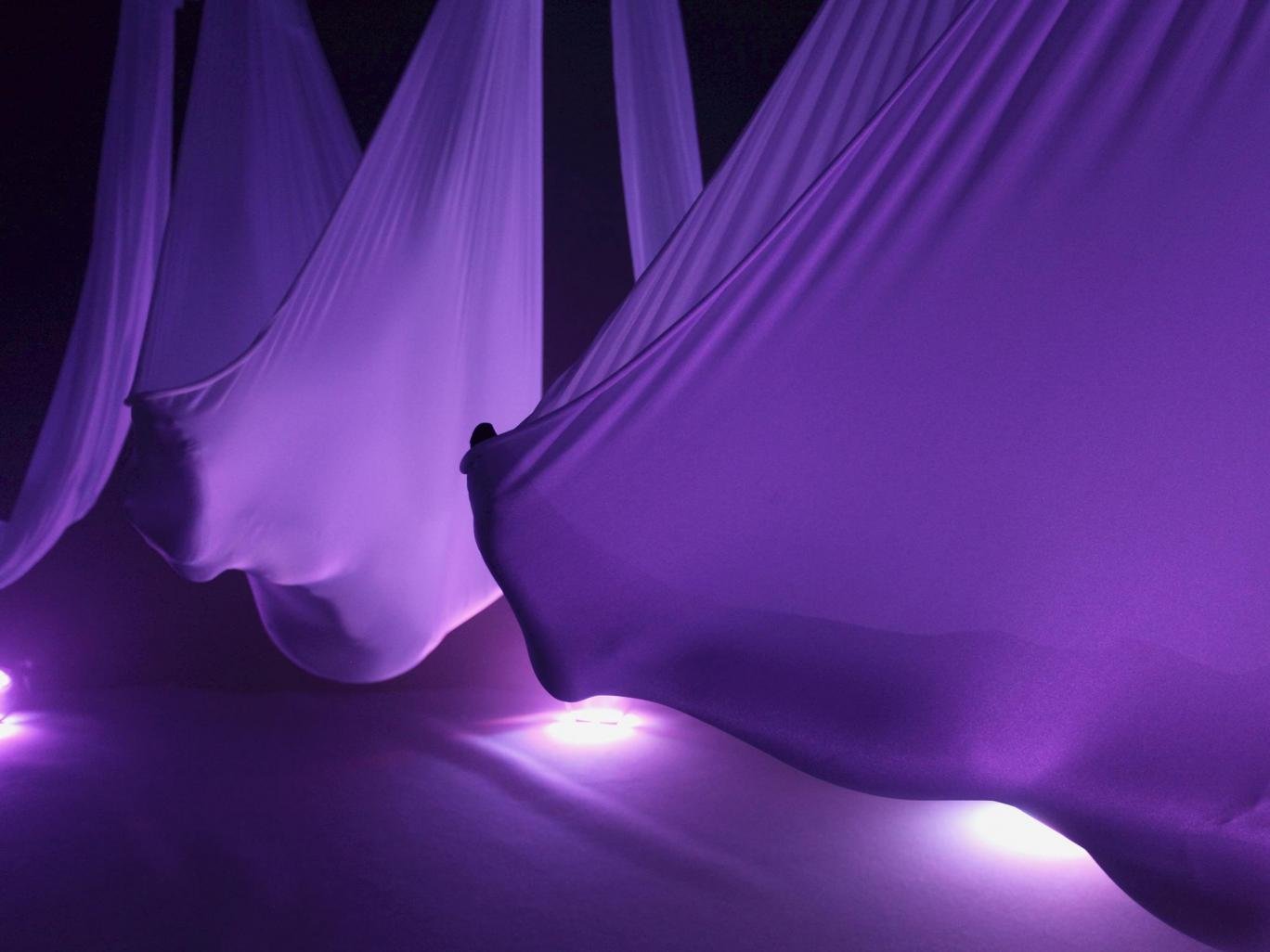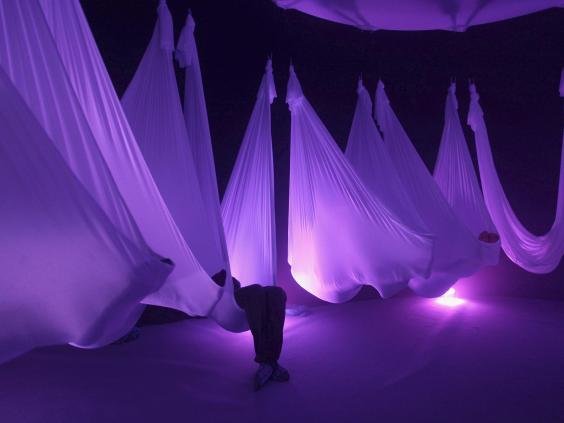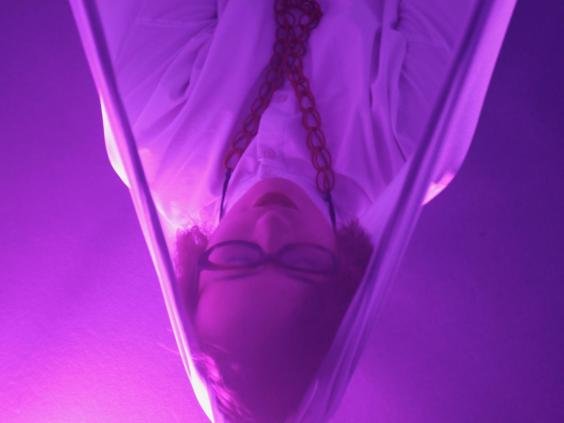Studier viser, at det vestlige søvnmønster er unaturligt og skadeligt, men ville vores indgroede 9-5 kulture tillade os at acceptere sunde daglige powernaps? Hazel Sheffiled rapporterer.
Amdale shoppingcenter i Manchester er et upraktisk sted at tage sig en lur. Folk på indkøb og skynder sig gennem det gråhvide indre. Folk stopper på bænke for at spise konditorkager. Arbejdere skynder sig tilbage til deres kontorborde før slutningen af deres middagspause. Ingen bemærker den lave pulserende lyd, der kommer fra et stort sort telt lige midt i bygningen overfor Starbucks. Så, fra indgang til teltet kommer en række af mennesker der gaber: De har lige fået 15 minutters kvalitetssøvn.
Kommentar: Delvist oversat af Sott.net fra Power naps and the science of sleep
The Chronarium Sleep Lab landed at the Arndale shopping centre as part of the Manchester Science Festival, an 11-day long event taking in more than 100 installations and activities across the city.
From periscope making to mushroom growing, much of the schedule is dedicated to stimulating people with the wonders of science. This is perhaps the only one designed to to put them to sleep. But it could be the most important.
"Sleep deprivation is a massive future health hazard, " says Dr Caroline Horton, senior lecturer in cognitive psychology at Bishop Grosseteste University in Lincoln. Research shows that people in the UK are sleeping several minutes a night less than they did 10 years ago. Many of us waste time awake in bed, our faces illuminated by blue smartphone light.
The scientific community is yet to build a long-term body of evidence of the consequences, but lack of sleep has been associated with the rise of Alzheimer's, dementia, mental health disorders and slower recovery times from cancer treatments.
Each day, the waiting list for spaces at the Chronarium fills up quickly. At their allotted time, volunteers gather excitedly at the mouth of the curtained enclosure and remove their shoes. Inside, white slings hang like pupae in a circle, bathed in soothing blue and purple light. There is much squealing as an assistant tries to help people climb inside the fabric, an aerial silk normally used for a kind of gravity-defying yoga.
They defy cultural stigma in countries like the US and the UK, where sleeping on the job as a sign of weakness. "It would be wonderful if people could have a nap at work, but culturally we're a long way from that, and if it's just associated with the workplace that's bad too, " Dr Horton says.
The Chronarium was designed for an event in Singapore, where napping is a part of daily life. "We didn't have people raising their eyebrows and finding the idea to sleep in the day unusual, " says Mathias Gmachl, co-director of Loop.pH, the design agency behind the idea. Creative producer Carole Keating says her team asked Loop.pH to be a part of the festival to try change attitudes in the UK by demonstrating the importance of sleep in a pleasurable and restorative way.
Together, they picked Arndale as a deliberately counterintuitive location. "We were interested in creating an experience that is social but about wellbeing and looking after yourself, to contrast social activities like shopping and drinking that aren't necessarily good for you, " Mathias says.

At first, bodies fidget in the slings, sending small vibrations through the structure. But as the time advances a stillness descends as people fall asleep.
A few minutes later, the meditative voice coaxes everyone back to consciousness and people emerge, stretching from their cocoons to continue with the day. Some report feeling calmer and more energised as they leave the tent.
While we might be some way off sleep pods in the bedroom, Dr Horton says we need to cosy up to nap time to stop us sleep-walking into a major public health hazard.
"People need to accept that napping in the day is not a sign of weakness, " she says. So next time you're feeling sleepy, go for a guilt-free nap. Science says it's good for you






Kommentar: